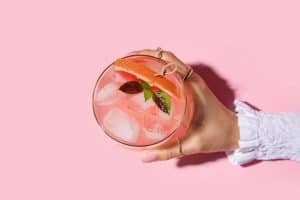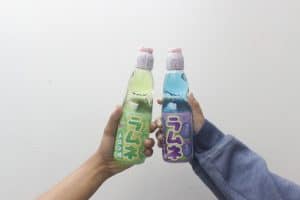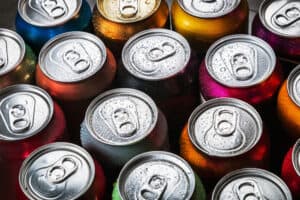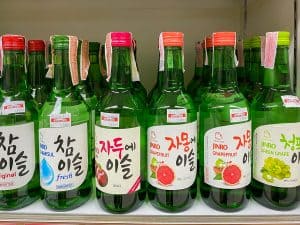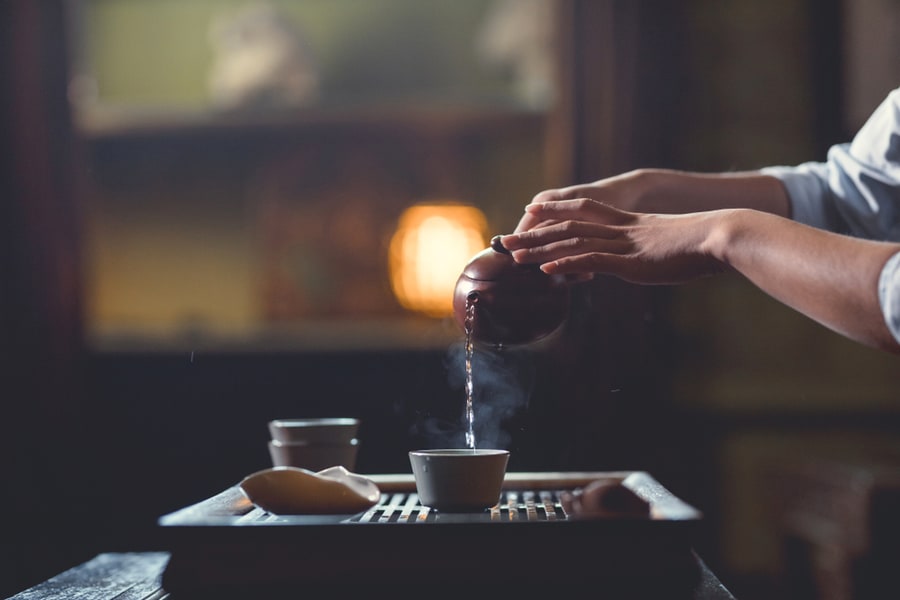
Surprisingly or maybe not, the instance of drinking tea for the first time is dated back to ancient China. So, yes, you can guess the importance of tea in Chinese culture.
It started as a method to tackle cold and feverish conditions but later became prevalent, and even now, the Chinese drink tea daily.
Before modernization, tea was a treat for only the wealthy in China, but poor people ingested hot water to get the same benefits, which was the main component, excluding the herbs.
So, why is this tradition still practiced? Why do Chinese people drink tea after a meal?
Chinese drink tea for several reasons, and it can be enjoyed during or post-meal. But the main reasons are the health benefits; it aids digestion, enhances metabolic activity, extracts toxins from your body, keeps your skin timeless, and is a symbol of continuing the tradition.
Here, we will describe various reasons why Chinese people drink tea after a meal and some commonly drunk teas by Chinese people.
Reasons Why Chinese Drink Tea After a Meal
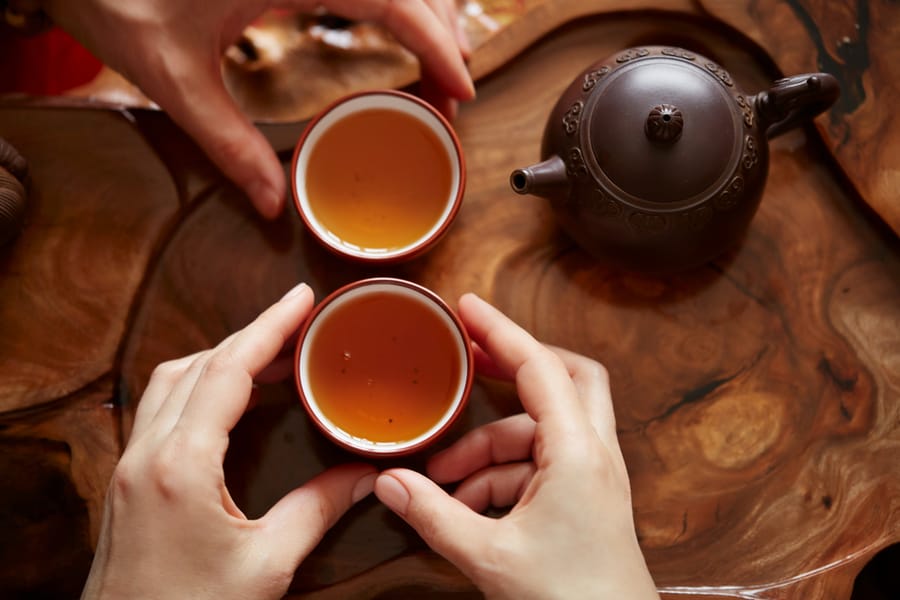
The reason behind the tea consumption of people after eating in China is closely related to the benefits these simple drinks offer. These benefits are as follows.
1. Helps in Digestion
Teas are the best to help you digest food and are natural remedies for an upset stomach. Indigestion or an upset stomach is caused by foods that are not easily digestible, which your body may reject.
So, drinking tea helps to dissolve these substances and prevents abnormalities, which is why the Chinese turn to tea after a meal.
2. Keeps One From Getting Sick
Another benefit of drinking tea after a meal is to prevent your saliva from gathering in your throat and keeping your throat muscles relaxed; otherwise, it can cause phlegm to build up. So, it helps you to fight off contaminants that may cause you to contract a cold.
3. To Detox the Body
Teas contain flavonoids that improve the functionality of the system of your body. How does that help in detoxing, you ask?
It works by aiding in intestinal movements, which can rid your body of contaminants and keep it healthy.
It also has a productive effect on the skin. The detoxifying effect is not limited to the intestines. It also purifies the skin, making it look livelier. It eases the blood flow and helps the absorption of oxygen in the blood, maintaining the elasticity of your skin. So, it makes you look younger.
4. To Calm the Mind
Meditation and tea go hand in hand. Teas calm your nerves and stop you from the heat of the moment actions.
In the hectic lifestyle of Chinese people, tea provides a sense of relief to the stress they have accumulated throughout the day. That is why tea is a must for them after a meal.
5. To Regulate Weight
Chinese are fit and have slim figures; ever wonder what the magic is behind most of the populace being physically strong and active?
It is due to their habits of regular tea consumption after a meal. Yes, drinking tea after 30-40 minutes of a meal or two hours post-meal as a snack aids weight loss.
How does it work? It does so by two approaches.
Drinking tea helps you refrain from munching on extra food or side dishes, keeping you from extra calories and, in turn, preventing you from gaining excess weight.
The second and perhaps the most popular feature is the boosting of metabolic activity. What does that have to do with weight regulation or loss? Everything.
Metabolism being quick means you are burning calories faster than you are eating, so in a way, you are losing fat without going through strenuous and arduous exercises and gym routines.
Remember, it is not a miracle remedy, meaning that not doing any physical activity and expecting it to magically make you slim will not work. What it does is it helps in quicker weight loss. So, if you are in the middle of losing weight, adding a cup of tea can help.
6. Packed With Healthy Nutrition
Teas are a great source of polyphenols. These compounds are the reason behind the flavor of the tea and are antioxidants. These help fight free radicals in your body. Why are they a cause for concern? Because they can lead to various heart conditions and even cancer in the worst case.
However, that does not mean you should start having tea in large amounts. Tea also contains caffeine like its counterpart, i.e., coffee, because it can lead to side effects.
7. As A Cultural Aspect
Arguably the most probable reason that sets the routine tea drinking of other regions from Chinese people ingesting tea after a meal is the continuation of their tradition of tea drinking.
The aspect of drinking tea is deeply rooted in Chinese culture. Chinese people savor teas like an exquisitely aged wine by relishing its fragrance first and then drinking it.
It also provides a platform for Chinese people to have a hearty talk after a meal with ease, unlike when eating a meal.
Commonly Drunk Teas in China
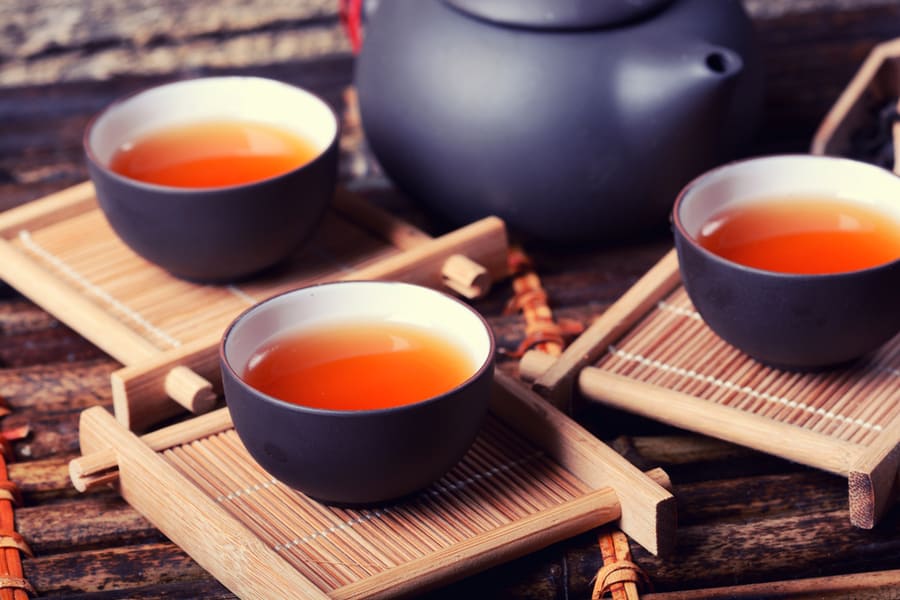
There are several varieties of teas in China, each with a perk of its own, but I’m sure you are also familiar with the most popular tea they drink. Here are some of these:
Green Tea: Green tea is the most popular tea in China and has continued to reign as the most famed tea for nearly a millennium because of its health benefits.
Pu-erh Tea: This tea differs in appearance from the start. It comes as a brownish-black brick or rolled-up ball and comes from Yunnan province. But its taste is not to everyone’s liking.
Chrysanthemum Tea: It is famous for its health effects, such as calming the mind and helping to tackle the common cold. It is made using dried chrysanthemum flowers.
Takeaway
Lastly, Chinese people drink tea after a meal to chat, relax their minds, help digest the food, and keep themselves safe from common colds and flu.
Teas have a significant role in various ceremonies in China, which shows the respectful behavior of Chinese people towards their guests, and as a sign of respect and appreciation towards their elderly. It highlights why drinking tea after a meal is so common for them.

